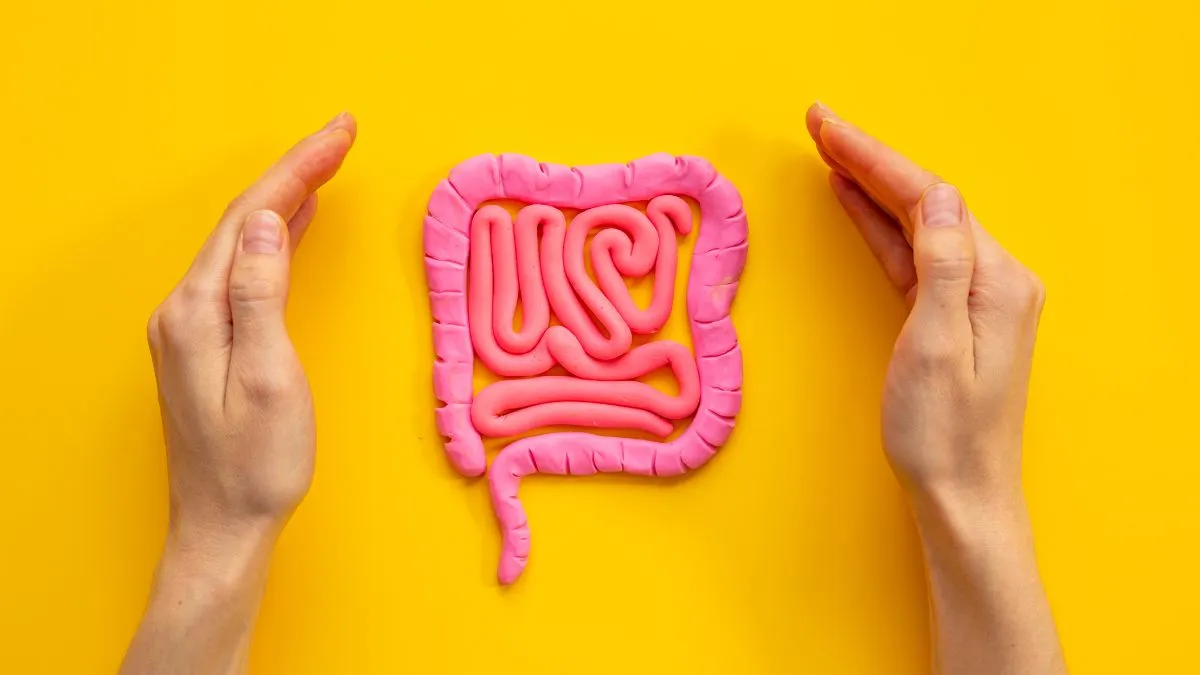
Introduction to Gut Health
Gut health refers to the overall state and functionality of the gastrointestinal tract, which plays a crucial role in digestion and overall bodily health. A healthy gut is vital not only for breaking down food and absorbing essential nutrients but also for supporting immune function and mental health. The gut is often referred to as the “second brain” due to the significant connection between digestive health and mental well-being, influenced by gut bacteria and their byproducts.
Various factors contribute to maintaining a healthy gut, including diet, lifestyle, and genetics. A balanced diet rich in fiber, fruits, vegetables, and fermented foods fosters the growth of beneficial gut bacteria, promoting a diverse microbiome. Additionally, regular physical activity and adequate hydration are essential to supporting gut motility and digestion. Stress management is also crucial, as chronic stress can disrupt the balance of gut microbiota, leading to digestive issues and, in some cases, systemic health problems.
Moreover, the modern lifestyle has introduced several challenges that can compromise gut health. High sugar and processed food consumption, sedentary habits, and increased levels of stress contribute to a decline in digestive health. In recent years, the prevalence of gut-related issues such as Irritable Bowel Syndrome (IBS), food intolerances, and inflammatory bowel diseases has been on the rise in India, prompting a need for a deeper understanding of gut health. Addressing these concerns requires attention to lifestyle choices and dietary practices that will ultimately enhance gut function and promote overall well-being.
Current Statistics and Trends in India
Over recent years, gut health issues have emerged as a significant concern in India, reflecting broader changes in lifestyle and dietary patterns. According to recent studies, nearly 54% of Indian adults are reported to suffer from some form of digestive disorder, with symptoms such as bloating, constipation, and acid reflux being increasingly prevalent. These statistics emphasize the urgent need for awareness and better management of gut health, as this represents a considerable proportion of the population facing daily discomfort and health problems.
An analysis of trends over the past decade illustrates a concerning rise in conditions like Irritable Bowel Syndrome (IBS) and inflammatory bowel diseases, paralleling shifts in dietary habits among Indian consumers. A 2022 survey revealed that about 40% of respondents had modified their diets owing to concerns about digestive health, moving away from traditional foods that were once staples in the Indian diet. The increasing consumption of processed foods, high in sugar and unhealthy fats, has exacerbated these gut health challenges, significantly altering the gut microbiome.
Furthermore, studies indicate a correlation between urbanization and gut health deterioration in India. Urban areas, characterized by fast-paced lifestyles and easy access to highly processed food options, have observed a marked increase in cases of gut-related ailments. Additionally, factors such as stress and sedentary behaviors are contributing to the deterioration of gut health in many individuals. These trends highlight the need for comprehensive strategies to address and improve gut health through dietary education, lifestyle modifications, and the promotion of traditional dietary practices that support digestive well-being.
Common Gut Health Issues in India
In recent years, the Indian population has experienced a notable increase in various gut health issues. Among these, Irritable Bowel Syndrome (IBS) stands out as one of the most prevalent conditions. IBS is characterized by a group of gastrointestinal symptoms, including abdominal pain, bloating, gas, and altered bowel habits, such as diarrhea or constipation. The exact cause of IBS remains unclear; however, factors such as stress, dietary habits, and gut microbiota imbalances may play significant roles in its manifestation.
Another common gut health issue prevalent in India is gastritis, which refers to the inflammation of the stomach lining. This condition can be acute or chronic and is often caused by excessive alcohol consumption, chronic stress, or prolonged use of nonsteroidal anti-inflammatory drugs (NSAIDs). Symptoms associated with gastritis typically include nausea, vomiting, indigestion, and stomach pain. Chronic cases may lead to more severe complications, including ulcers or an increased risk of gastric cancer. The dietary habits in India, which often include spicy and rich foods, may further exacerbate gastritis symptoms.
Food intolerances also pose significant challenges to gut health in India. Common intolerances include lactose intolerance and gluten sensitivity, which can lead to symptoms such as bloating, cramping, diarrhea, and fatigue. With the rising popularity of processed foods and fast food, the incidence of food intolerances is on the rise. Individuals with food intolerances often experience discomfort upon consuming specific foods, which can impact their overall quality of life.
By understanding these prevalent gut health issues and their underlying causes, individuals can take proactive measures to manage their symptoms and improve their overall digestive health. A combination of lifestyle changes, dietary adjustments, and awareness of one’s own body can significantly contribute to reducing the burden of these common gut problems across the Indian population.
The Role of Diet and Lifestyle
The rising gut health issues in India are increasingly attributed to dietary choices and lifestyle factors. Traditional Indian diets, which were predominantly rich in whole foods, fruits, vegetables, and legumes, have gradually shifted towards processed and convenience foods. This transition can be linked to the fast-paced lifestyle that many urban dwellers experience, as well as the growing availability of pre-packaged snacks and ready-to-eat meals. Such processed foods, often high in sugars, unhealthy fats, and preservatives, can disrupt the gut microbiome, leading to various gastrointestinal problems, including bloating, constipation, and irritable bowel syndrome.
Additionally, the consumption of refined carbohydrates, which has become prevalent in modern Indian diets, can contribute to an imbalance in gut bacteria. These carbohydrate sources often lack the essential fiber necessary for maintaining digestive health, resulting in a reduction of beneficial bacteria. A fiber-rich diet is vital for promoting regular bowel movements and for the fermentation process that fuels the nourishing bacteria residing in the gut.
Moreover, the importance of fermented foods and probiotics cannot be overlooked. Traditional Indian staples such as yogurt (dahi), pickles (achar), and idli or dosa (fermented rice and lentil preparations) play a crucial role in maintaining gut flora. These foods contain live cultures that help in the digestion process and support gut health. However, with modern dietary shifts and a decline in the consumption of these fermented products, there is a pressing need to re-emphasize their incorporation into daily meals.
The relationship between diet, lifestyle, and gut health is complex. A balanced diet enriched with fiber, probiotics, and minimized processed food intake could significantly enhance digestive health and prevent the rising incidence of gut-related issues in the Indian population. To address these challenges effectively, raising awareness about dietary choices is essential for fostering a healthier population.
Expert Opinions on the Crisis
The rising gut health issues in India have captured the attention of healthcare professionals and researchers alike, prompting a closer examination of the underlying causes. Experts in the field emphasize that dietary patterns, lifestyle changes, and environmental factors play critical roles in the deterioration of gut health among the Indian population. Dr. Meera Sharma, a gastroenterologist, explains that the modern Indian diet has shifted away from traditional, nutrient-rich foods to fast foods laden with preservatives and additives. This dietary shift leads to a decrease in fiber intake, which is essential for maintaining a healthy gut microbiome.
Furthermore, Dr. Ravi Kumar, a nutritionist, highlights the importance of understanding the relationship between stress and gut health. The increasing prevalence of lifestyle-related stressors, coupled with sedentary behavior, has been linked to gastrointestinal disorders in young adults. He notes that mental health plays a pivotal role in digestive health, and strategies to improve emotional well-being could potentially alleviate gut health issues.
Another perspective comes from Dr. Ananya Roy, an environmental health researcher, who addresses the influence of pollution and chemical exposures on gut flora. She points out that urbanization in India has led to increased pollution, which can disrupt the delicate balance of microbiomes. As these external factors wreak havoc on gut health, the need for comprehensive lifestyle changes becomes apparent.
Collectively, these experts suggest that addressing gut health issues requires a multi-faceted approach, including public awareness campaigns focused on healthy eating, stress management, and environmental awareness. By fostering a culture of gut health through education and sustainable practices, it is possible to combat this rising crisis effectively. Engaging healthcare professionals in promoting preventive measures can significantly impact the overall well-being of the population.
Mental Health and Gut Health Connection
The relationship between mental health and gut health has garnered increasing attention, particularly in understanding the gut-brain axis. This bidirectional communication system involves complex interactions between the gastrointestinal tract and the central nervous system, suggesting that both mental well-being and digestive health are intrinsically linked. Emerging research indicates that psychological conditions such as stress and anxiety can significantly influence gut health, leading to various digestive issues.
Stress, for instance, has been shown to disrupt the gut microbiome’s balance, potentially resulting in dysbiosis, which can manifest as symptoms such as bloating, diarrhea, or constipation. In addition, stress triggers the release of stress hormones, such as cortisol, which can negatively affect gut motility and function. Consequently, individuals experiencing chronic stress may find themselves caught in a vicious cycle where poor gut health exacerbates mental health challenges, leading to heightened anxiety or depression.
Anxiety, similarly, has a profound impact on gastrointestinal health. Those with anxiety disorders often report heightened sensitivity in the gut, resulting in symptoms like irritable bowel syndrome (IBS). The gut-brain axis plays a pivotal role here, as the brain’s perception of anxiety can significantly impact gut physiology and vice versa. This interconnectedness reinforces the notion that fostering mental well-being is essential for maintaining a healthy digestive system.
It is essential for individuals facing significant mental health challenges to recognize the importance of gut health and vice versa. Strategies such as stress management techniques, a balanced diet rich in fiber, and probiotics may be beneficial in supporting both psychological and digestive health. Emphasizing mental well-being can significantly contribute to improved gut health, highlighting the necessity of an integrated approach to health that encompasses both mind and body for holistic wellness.
Preventative Measures and Solutions
The rising concerns surrounding gut health in India necessitate proactive approaches to maintaining digestive well-being. A well-balanced diet plays a pivotal role in ensuring a healthy gut microbiome. Incorporating a variety of fiber-rich foods such as whole grains, fruits, and vegetables is crucial, as these foods promote beneficial bacteria growth. Probiotic-rich items like yogurt and fermented products can further enhance gut health by introducing live beneficial microbes into the digestive system.
Hydration is another key factor; adequate water intake aids digestion and helps in the absorption of nutrients. Additionally, minimizing the consumption of processed foods, which often contain high levels of sugars and unhealthy fats, can mitigate the risk of various gut-related issues. Instead, opting for whole and minimally processed foods contributes to a healthier digestive system.
Beyond dietary choices, lifestyle adjustments can significantly impact gut health. Regular physical activity not only helps in maintaining a healthy weight but also promotes efficient digestion. Engaging in moderate exercise, such as walking or yoga, can support overall gut function and alleviate symptoms of common digestive disorders.
Stress management is equally important. High levels of stress can disrupt gut health, leading to conditions such as irritable bowel syndrome (IBS). Incorporating relaxation techniques, such as mindfulness meditation or deep breathing exercises, can help in maintaining digestive harmony. Furthermore, ensuring adequate and restful sleep allows the body to heal and supports the overall functioning of the gastrointestinal tract.
Preventive measures also encompass regular health check-ups to identify any emerging gut issues early on. In addition to routine medical advice, being attentive to individual dietary intolerances and adopting an elimination diet can assist in pinpointing potential triggers that may compromise gut health. By implementing these practical solutions, individuals can take significant strides towards safeguarding their gut health.
The Future of Gut Health in India
As the awareness surrounding gut health issues in India continues to evolve, several trends are expected to shape the future of digestive healthcare. Research has increasingly emphasized the importance of the gut microbiome, highlighting how it affects overall health and well-being. In the coming years, advancements in genomics and microbiome research are likely to provide deeper insights into the unique bacterial communities within individual digestive systems, paving the way for personalized gut health treatments. This shift towards a more tailored approach may help in addressing specific digestive health needs and improving patient outcomes.
Simultaneously, there is a pressing need for greater collaboration among healthcare professionals, researchers, and policymakers. The integration of gut health education into medical curricula can empower healthcare providers to give informed advice on the prevention and management of gastrointestinal disorders. In addition, community health initiatives focused on digestive health literacy can raise awareness about the significance of a balanced diet and lifestyle choices in maintaining gut health. Efforts to reduce stigma associated with digestive issues will encourage individuals to seek help earlier and promote a culture of open dialogue.
Moreover, digital health technologies are set to play a significant role in transforming how individuals manage their gut health. Mobile applications designed for tracking dietary habits and gut health symptoms could assist in creating tailored dietary plans that emphasize gut-supportive foods. These innovative solutions may also facilitate remote consultations with nutritionists and gastroenterologists, making expert advice more accessible to the broader population.
In conclusion, addressing the rising gut health issues in India requires a multifaceted approach that combines cutting-edge research, public education, and innovative healthcare solutions. As society becomes more aware and proactive about gut health, the future looks promising for improving digestive health outcomes across the nation.
Conclusion: Reinforcing the Importance of Gut Health
In recent times, gut health has emerged as a significant concern for individuals in India. With a rise in digestive disorders, food intolerances, and lifestyle-related health issues, it becomes imperative to emphasize the importance of maintaining a balanced gut microbiome. The intricate relationship between gut health and overall well-being has been well-documented, highlighting how a healthy gut contributes to improved immune function, better mental health, and enhanced nutrient absorption. Ensuring an optimal state of gut health should thus be a priority for everyone.
Throughout this discussion, we explored various contributing factors to gut health issues prevalent in India, including dietary habits, increased stress levels, and sedentary lifestyles. The traditional Indian diet, which has been rich in fiber and probiotics, is increasingly supplemented with processed foods that may lead to imbalances in gut flora. This shift underscores the need for individuals to reevaluate their eating patterns and prioritize whole, minimally processed foods that support gut integrity.
Furthermore, the importance of hydration, physical activity, and stress management emerged as critical components in nurturing gut health. Incorporating a balanced mix of foods that are rich in prebiotics, such as bananas and onions, and probiotics, like yogurt and fermented products, can significantly promote a healthy gut microbiome. It is essential to remember that changes in diet and lifestyle do not need to be drastic; even small modifications can yield substantial benefits over time.
As we move forward, it is crucial for individuals to take gut health seriously. By being proactive and informed about their dietary and lifestyle choices, they can pave the way for better health outcomes. Ultimately, prioritizing gut health is not merely a recommendation; it is a vital step toward achieving and maintaining overall wellness.










